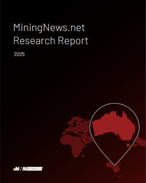This article is 3 years old. Images might not display.
The EPA recommendation includes 19 proposed conditions to be adhered to in the construction and operation of Mardie, which are consistent with BCI's designs, costings and implementation plans.
Where required, BCI will make minor modifications to drainage design to improve management of surface water flow, and BCI will contribute funds to the WA government's Pilbara Environmental Offset Fund and other research and management programs.
The changes will not have a material impact on the design and economic assumptions supporting Mardie's development.
The recommendation now goes to environment minister Amber-Jade Sanderson for a final decision.
Environmental approval is one of the few remaining milestones ahead of BCI's final investment decision.
"This positive environmental assessment represents four years of collaboration with the EPA and evidences our systematic approach to approvals and our willingness to engage with stakeholders," BCI managing director Alwyn Vorster said.
"Mardie's comprehensive environmental management plans will ensure the environmental values will be appropriately managed and protected."
The EPA recommendation is based on Mardie's June 2020 definitive feasibility study, though the April 2021 optimised feasibility study included newly acquired tenements, which will be subject to further environmental assessment and approvals over the next 12-15 months.
Construction access to these additional areas is not required until late in 2022.
The areas are considerably smaller than the original DFS footprint and are largely infested by Mesquite weed and BCI expects the assessment process to be relatively less complex.
Mardie aims to produce 5.35 million tonnes per annum of high-purity salt and 140,000 tonnes per annum of sulphate of potash via the solar evaporation of seawater.
BC is targeting an FID shortly and the start of construction in the December quarter.
On that timetable, first salt sales could be expected in the September quarter of 2024, following by first SOP sales by the December quarter of 2025.
The project has capital costs of A$913 million.
Shares in BCI were up 2.7% to 56.5c, 3c off its 52-week high, giving the company a market value of $338.5 million.
























